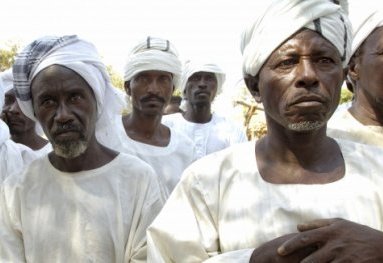Scores killed in South Kordofan tribal clashes
January 6, 2013 (KHARTOUM) – Fierce clashes erupted in the restive state of South Kordofan between three clans of the Arab Misseriya tribe killing more than a dozen people and injuring more others, eyewitnesses told Sudan Tribune.
 The violence started on Saturday evening following the death of a man in Foula town belonging to the Sons of Heiban clan leading the latter to accuse Suroor and Metinan clans of standing behind it.
The violence started on Saturday evening following the death of a man in Foula town belonging to the Sons of Heiban clan leading the latter to accuse Suroor and Metinan clans of standing behind it.
Both warring sides have had disputes over land since last year which likely increased the chances of renewed conflict as demonstrated this week.
Eyewitnesses said that heavy weaponry was used in the fighting leading to complete closure of the town market and streets were empty. Local authorities did not intervene to control the situation for unknown reasons.
However it was reported that a plane was hovering over the town during the clashes on Sunday.
The State Security Committee issued a statement in response calling on all parties “to demonstrate the highest degree of caution, patience and wisdom to overcome the events” and pledged to “take all that is necessary, decisive, firm and deterring to contain the situation [that is now] completely under control”.
The press release said that since December 30th four incidents occurred in different areas resulting in the death of six people from the parties of the conflict in Foula which led to later escalation of events.
The committee claimed that it has information that elements from the Sudan Revolutionary Front (SRF) will try to exploit the tribal tensions in order to undermine the state stability.
South Kordofan, which lies between Darfur and South Sudan, is one of the most unstable and militarized parts of the country. It is the scene of fighting between the Sudanese army and Sudan People Liberation Movement North (SPLM-N) which is part of the SRF coalition of insurgent groups.
The heavily-armed Misseriya were a key proxy militia of the northern army during the civil war which started in 1983. They migrate during the dry season to find ever-scarcer water and pasture for their livestock, most notoriously to the flashpoint border district of Abyei.
(ST)
